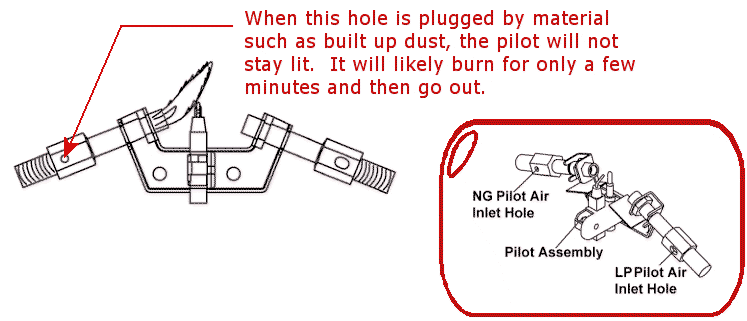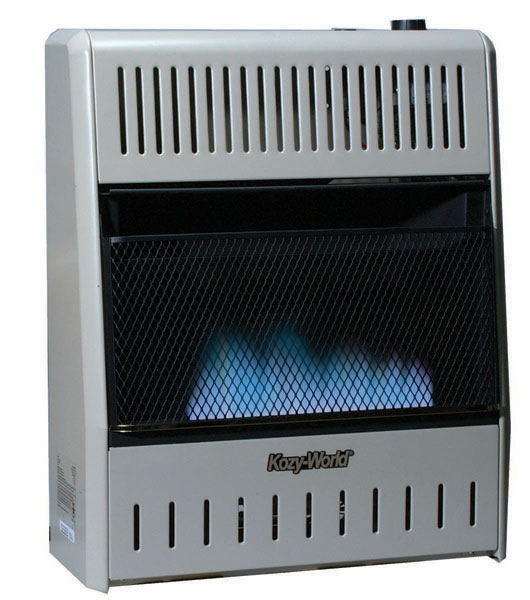Difference between revisions of "Kozy World GWD208"
m |
|||
| Line 102: | Line 102: | ||
[[Category:Home]] | [[Category:Home]] | ||
[[Category:Tangible Product]] | [[Category:Tangible Product]] | ||
| + | [[Category:Propane]] | ||
Latest revision as of 14:16, 10 February 2024
20K BTU Dual Fuel Blue Flame Wall heater
No Electrical Connection Required. This is a ventless gas heater. As with all vent-less gas appliances, use in well ventilated area. This heater is 100% efficient with the trade-off that, although minimal, fumes are vented into the living area.
Contents
Product Guide
Model #: GWD208
Heater Type: Gas Appliance Gas Wall Heaters
Kozy World dual fuel, blue flame gas wall heaters utilizes their blue flame to heat the air in the entire room. Easy to install and 99% fuel efficient. No electricity needed and an oxygen depletion sensor is built in.
Picture
Features
- Thermostat
- Vent free blue flame burner
- No electricity required for burner operation
- ODS, oxygen depletion sensor, safety feature
- Dual fuel: propane(LP) or natural gas(NG)
- Optional 120V blower (20-6027)
- Optional base (20-5242)
Specifications
- Fuel Type: Dual Fuel (Propane (LP) or Natural Gas)
- Temperature Control: Thermostat
- BTU Output: 20,000
- Electricity Required: no
- Heating Area: 700 sq ft
- Length: 8in
- Width: 19.25in
- Height: 23.5in
- Color: Light Beige
- Assembly Required: No
Support
- World Marketing of America, Inc.
- Frequently Asked Questions (FAQ) - GAS APPLIANCES
- Installation and Basic Components
My pilot light keeps going out
The most common reason is that dust and dirt are starting to build up, but are not yet quite bad enough to prevent the heater from lighting all together. A simple cleaning could have this heater operating in less than 15 minutes. See the cleaning and maintenance information section below.
Dirt in Heater Components

Illustration: This may be the most common cause of a pilot that burns for a few minutes then goes out. Even partial blockage of the Pilot Air Inlet Hole will result in an unreliable pilot. When the pilot goes out and the main burner is still going, the thermal coupler safety will cut the gas supply to the main burner. Keep the entire pilot assembly clean for reliable performance.
Gas Pressure
If this problem is happening during installation or when other gas appliances supplied by the same line are in operation, you may have low gas pressure. This could be caused by either using too small of a diameter supply line or low inlet pressure. Contact your gas supplier. Residential Natural Gas Service Supply issues during peek usage or unexpected spikes can cause gas pressure irregularities that may result in failure of the ventless unit staying lit. The pilot may go out while the burner is still going, even though that flame is active the unit safety will still result in a shutoff.
Altitude
If you are trying to use a vent free gas appliance at a location higher than 4500 feet, the pilot will not stay lit as the air is too thin and there is not enough oxygen for proper operation. There is no solution for this.
Ventilation
If your heater operates for awhile and then shuts off, including the pilot, you may be using the appliance in too small of a space. Vent Free Appliances require sufficient oxygen to operate. This problem is most commonly found when too large of an appliance is used in too small of a space, although it can occur if a house is very tightly insulated. Adding additional ventilation can be as simple as opening a window. Check your Owner’s Manual for more details on ventilation.
Cleaning is Important
We recommend that you clean the unit at least every 2 to 3 months or after 2000 hours of operation. More frequent cleaning may be needed based on how and where you use your heater. A yellow tip on the pilot flame or lifting of the flame indicates dust and dirt in the pilot assembly.
keep the burner tube and pilot assembly clean and free of dust and dirt. To clean these parts we recommend using compressed air no greater than 30 PSI. You can also use a vacuum cleaner in the blow position. If using compressed air in a can, please follow the directions on the can. Failure to follow these directions could damage the pilot assembly.
- Shut off the unit, including the pilot. Allow the unit to cool for at least 30 minutes.
- Inspect burner, pilot, and primary air inlet holes on injector holder for dust and dirt.
- Blow air through the ports/slots and holes in the burner.
- Check the injector holder located at the end of the burner tube again. Remove any large particles of dust, dirt, lint, or pet hair with a soft cloth or vacuum cleaner nozzle.
- Blow air into the primary air holes on the injector holder.
- In case any large clumps of dust have now been pushed into the burner repeat steps 3 and 4.
Clean the pilot assembly. A yellow tip on the pilot flame or lifting of the flame indicates dust and dirt in the pilot assembly. There is a small pilot air inlet hole about 2 inches from where the pilot flame comes out of the pilot assembly. With the unit off, lightly blow air through the air inlet hole. You may blow through a drinking straw if compressed air is not available. Do NOT insert anything into the pilot tube as this may damage the assembly.
MAIN BURNER
Periodically inspect all burner flame holes with the fireplace running. All slotted burner flame holes should be open with yellow flame present. Some burner flame holes may become blocked by debris or rust, with no flame present. If so, turn off fireplace and let cool. Either remove blockage or replace burner. Blocked burner flame holes will create soot. Only a qualified technician can replace parts.
AIR PASSAGEWAYS
Use a vacuum cleaner or pressurized air to clean.
Piezo Igniter Won't Spark
If you do not hear a loud snap when you press down on the igniter, the igniter needs replaced.
If you hear a loud snap, but there is no spark at the igniter, the igniter wire might simply be loose and in need of tightening.
If you hear a loud snap, but there is no spark at the igniter, there could be a crack in the igniter wire. In this case you may see a spark from somewhere else on the wire. You may need to replace the wire if it is damaged.
